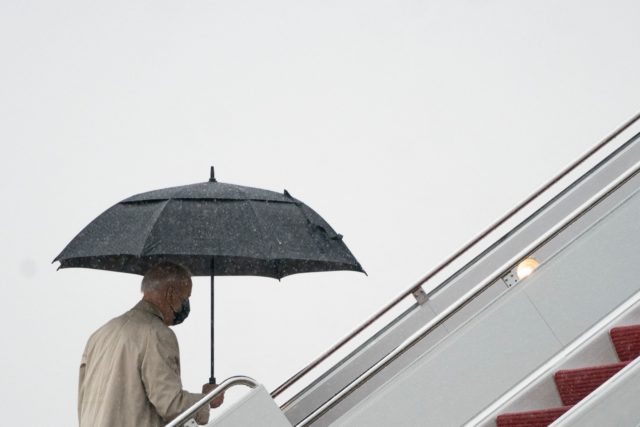Americans expect more inflation this year and remain uneasy about the direction of the economy, the University of Michigan’s survey of consumers showed Friday.
Expected inflation over the next year rose to 4.7 percent from 4.2 percent in June. That’s the highest level in over a decade.
At least for now, however, Americans still believe that inflation will remain tame over the long term. Expected inflation over the next five years is just 2.8 percent, down from 3 percent in May.
“While most consumers still expect inflation to be transitory, there is growing evidence that an inflation storm is likely to develop on the not too distant horizon. The improved finances of consumers have greatly reduced consumers’ resistance to price increases,” said Richard Curtin, the chief economist of the survey.
Curtin explained the possible dynamic for inflation lasting longer than thought:
Consumers and firms currently justify their actions as temporary adjustments due to the pandemic. However justified, such changes act to generate an upward spiral in prices and wages. Moreover, the fiscal and monetary policies already in place, and the likely increases and continued accommodation now contemplated, will only increase the willingness of consumers and firms to act in ways that accelerate the upward spiral in prices and wages.
The second and final reading of the University of Michigan’s consumer sentiment index showed a sharp decline to 81.2 in July from a reading of 85.5 in June. The current conditions component declined 4.6 percent and the expectations component fell 5.4 percent.
In his analysis, Curtin says the falling income inequality will mean more spending power in the hands of the less well off. Because the propensity to spend is greater for the less wealthy, rising incomes will result in more spending, more growth, and more inflation, according to Curtin.
“The booms will end in the same way as usual: rising prices will eventually outdistance wage gains, lowering living standards, and cause an economy-wide retrenchment in spending,” Curtin said.

COMMENTS
Please let us know if you're having issues with commenting.